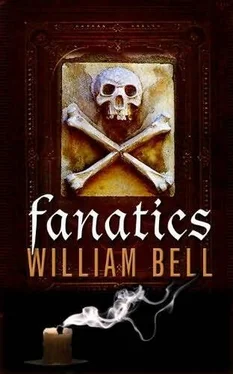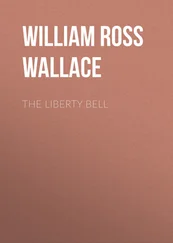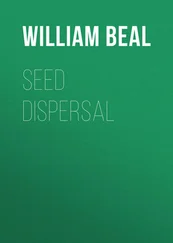“Hey, admit it. I really know how to show a girl a good time,” I joked.
She smiled. “Were you as scared as I was?”
“More. But it was too easy, wasn’t it? I told him to go and he went.”
Still trembling, I dug the keys from their hiding place and went through the elaborate process of getting into the secret cupboard. The objects-which I was beginning to consider a curse-seemed in place and intact. I hauled them out onto the table.
Raphaella came to stand beside me. “One of these is the reason he’s haunting this house,” she said.
She took the medal out of the box, held it on its edge against the tabletop, and flicked it. It spun for a moment, wobbled, and quivered to a stop. She picked up the heavy cross and set it down again, turning it toward the window so the sombre light dimly illuminated the jewels. Brushed the leather cover of the Compendium with her fingertips. Untied the string on the manuscript file, took out the stack of pages, and carried it to her work station. She had touched each of those things as if she was receiving a secret message from it.
“I feel like I know less and less each day,” I commented.
“It was this manuscript that seemed to attract all his attention last time he dropped in to say hello,” she said from her seat, holding up the scorched sheet we had found on the floor. “But… well, I just don’t know either.”
She sighed and pulled open her backpack.
Before long we were hard at work-Raphaella reading and taking notes on the Savonarola chapter of the professor’s book, me cataloguing volume after volume of history books, my computer on the wheeled stand I had made in the shop. I had copied and synched Raphaella’s database so that any addition either of us made would show up on the other’s file. As I pushed forward with the tedious job of recording the author and title of each book, reading the spine and tapping keys, occasionally taking down an old book and checking the title page because the words on the spine were illegible, I tried to put the image of the friar’s ravaged face out of my mind. But it kept slipping back, insisting that I note every macabre, loathsome detail.
At the same time my typically divided mind was telling me this was nuts. I was in a room lit by electric lights, not torches or candles, typing on a computer, not writing with a quill pen. It was the twenty-first century! How could I also be thinking about a ghost?
I gave up, my concentration shattered. I saved my work and wandered over to the alcove table, idly picked up the medal, with its image of a fist wielding the dagger of heavenly anger and punishment, its profile of Savonarola, whose revolting smell still lingered on the damp air in the room. I put the medal in its box and closed the lid, running my thumb over the cross.
I rested my hand idly on it, rotated it this way and that, watching the flat light wink in and out of the jewels and make patterns on the gold. On the heavy base of the cross the light seemed to form a little sphere inside the blown-glass dome. Tiny jeweller’s clips fit tightly into indentations around the dome, holding it in place. The wavy nature of the glass with its tiny bubbles almost obscured whatever it was meant to protect.
By the window, Raphaella turned a page, looked over and smiled, went back to her reading. I fished my penknife out of my pocket and opened the smaller of the two blades. Working slowly and cautiously I pried up the six clips until the dome came free. The bent clips poked up into the air like little cranes. It was easy to slide the dome out from under them.
I got the magnifying glass from Raphaella’s table and examined the object that had lain under the globe for who knew how many years. It was medium brown in colour, blackened a little along the outside edge, roughly circular, with a protruding bit on each side, and hollow in the centre.
It rested loosely in an indentation that had been carved into the gold alloy of the cross’s base. With the help of the magnifying glass I could make out the marks left by a carving tool.
“Raphaella?”
“Mmm?”
“Can you come over here and look at this?”
I handed her the magnifying glass. She bent and squinted at the mysterious article.
“Recognize it?”
“Nope.”
“Wait,” I said.
I slid the knife blade under the object and lifted it out of its place and set it down on the table.
Raphaella inspected it again. “Could it be some kind of shell or animal bone?”
“It isn’t wood. Or stone. Or plastic. So, yeah, maybe. Coral? No-wrong colour.”
Raphaella was thinking. “Why does the shape look familiar? Hmm. Something tells me I’ve seen this before.”
“If you can’t remember, it doesn’t matter if you’ve seen it before.”
“Don’t be technical,” Raphaella replied, taking a page of the manuscript she had been reading, turning it print side down on the table, and sliding the object onto the paper with her fingertip. Using the PIE, she took a picture of the thing, pressed a few buttons, and waited, eyes on the screen. She shut off the phone and put it down.
“I emailed the photo to Mother. If it’s animal or human, she’ll probably know. What are you doing?”
“Putting this thing back where it came from. Have you noticed a change in here during the last few minutes?”
“Yeah, it’s warmer all of a sudden,” Raphaella said. She sniffed. “And-”
“Right.”
Fighting the urge to hurry, I set the object back into its resting place in the base of the cross, fitted the dome into place, and bent the clips into their seats. The dome was tightly held again.
“Okay,” I said. “That should-”
My cell vibrated in my pocket.
“I shall serve lunch indoors today. In eight minutes.”
Raphaella and I locked away the artifacts, closed and locked the windows, and gratefully left the library.
LUNCH WAS MINESTRONE SOUP, thick and deep red, with beans, vegetables, little chunks of beef, shell pasta-all topped with freshly grated Parmesan cheese and sending off a mouthwatering aroma so wonderful that I held my face over the bowl, inhaling, for so long I upset our hostess.
“Is the zuppa quite all right?” Mrs. Stoppini asked in alarm.
“It’s great,” I replied. “Smells heavenly.”
“A nice change,” Raphaella put in, aiming a meaningful glance in my direction.
I almost choked on my soup, spluttering and holding off a laugh. Mrs. Stoppini looked confused.
“Don’t mind us,” Raphaella said. “We’re just being silly.”
“Indeed.”
“Mrs. Stoppini, you ought to open a restaurant,” I said in admiration. “Your cooking is fantastic.”
Her lipsticked-in lips betrayed the beginnings of a smile. “One does one’s best.”
Since I met her I had been trying to find a way to pump Mrs. Stoppini for information. Up to now she’d been a dry well. On the few times she’d looked as if she might share something of her life, she seemed to catch herself and hide behind a stern demeanour. Confidentiality was important to her. I had no argument with that, but her attitude didn’t help Raphaella and me with the central question: how much did she know about the goings-on in the library?
She had thawed out a bit in the short time I’d known her. She was still formal, if not flinty, most of the time, but I had learned that was a kind of defence that came from living alone after her “companion’s” death. Under the black wrapping beat a kind heart. I knew she was growing fond of Raphaella, so I thought this might be a good time to ask her a few things.
“It’s sure nice here on the estate,” I began, pretty subtly, I thought.
Nothing. Raphaella looked at me as if I had a geranium growing out of my head. Mrs. Stoppini merely nodded and ate some more soup in her ceremonial way, pushing her spoon away from her across the bowl, raising it at right angles to her mouth, and delicately sipping the soup off the spoon.
Читать дальше












